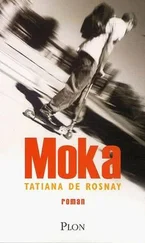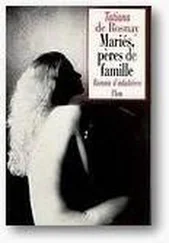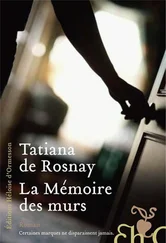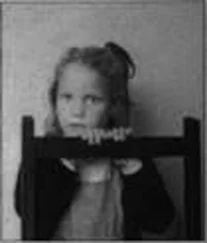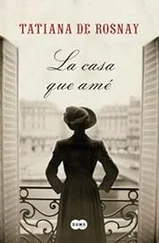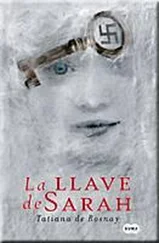
Tatiana de Rosnay
Sarah’s Key
© 2007
To Stella, my mother
To my beautiful, rebellious Charlotte
In memory of Natacha, my grandmother (1914-2005)
The characters in this novel are entirely fictitious. But several of the events described are not, especially those that occurred in Occupied France during summer of 1942, and in particular the great Vélodrome d’Hiver roundup, which took place on July 16, 1942, in the heart of Paris.
This is not a historical work and has no intention of being one. It is my tribute to the children of the Vel’ d’Hiv’. The children who never came back. And the ones who survived to tell.

My God! What is this country doing to me? Because it has rejected me, let us consider it coldly, let us watch it lose its honor and its life.
– IRÈNE NÉMIROVSKY, Suite Française (1942)
Tyger! Tyger! burning bright
In the forests of the night,
What immortal hand or eye
Could frame thy fearful symmetry?
– WILLIAM BLAKE, Songs of Experience

THE GIRL WAS THE first to hear the loud pounding on the door. Her room was closest to the entrance of the apartment. At first, dazed with sleep, she thought it was her father, coming up from his hiding place in the cellar. He’d forgotten his keys, and was impatient because nobody had heard his first, timid knock. But then came the voices, strong and brutal in the silence of the night. Nothing to do with her father. “Police! Open up! Now!”
The pounding took up again, louder. It echoed to the marrow of her bones. Her younger brother, asleep in the next bed, stirred. “Police! Open up! Open up!” What time was it? She peered through the curtains. It was still dark outside.
She was afraid. She remembered the recent, hushed conversations she had overheard, late at night, when her parents thought she was asleep. She had crept up to the living room door and she had listened and watched from a little crack through the panel. Her father’s nervous voice. Her mother’s anxious face. They spoke their native tongue, which the girl understood, although she was not as fluent as them. Her father had whispered that times ahead would be difficult. That they would have to be brave and very careful. He pronounced strange, unknown words: “camps,” “roundup, a big roundup,” “early morning arrests,” and the girl wondered what all of it meant. Her father had murmured that only the men were in danger, not the women, not the children, and that he would hide in the cellar every night.
He had explained to the girl in the morning that it would be safer if he slept downstairs, for a little while. Till “things got safe.” What “things,” exactly? thought the girl. What was “safe”? When would things be “safe” again? She wanted to find out what he had meant by “camp” and “roundup,” but she worried about admitting she had eavesdropped on her parents, several times. So she hadnot dared ask him.
“Open up! Police!”
Had the police found Papa in the cellar, she asked herself. Was that why they were here, had the police come to take Papa to the places he had mentioned during those hushed midnight talks: the “camps,” far away, out of the city?
The girl padded fast on silent feet to her mother’s room, down the corridor. Her mother awoke the minute she felt a hand on her shoulder.
“It’s the police, Maman,” the girl whispered. “They’re banging on the door.”
Her mother swept her legs from under the sheets, brushed her hair out of her eyes. The girl thought she looked tired, old, much older than her thirty years.
“Have they come to take Papa away?” pleaded the girl, her hands on her mother’s arms. “Have they come for him?”
The mother did not answer. Again the loud voices down the hallway. The mother swiftly put a dressing gown over her night dress, then took the girl by the hand and went to the door. Her hand was hot and clammy, like a child’s, the girl thought.
“Yes?” the mother said timidly, without opening the latch.
A man’s voice. He shouted her name.
“Yes, Monsieur, that is me,” she answered. Her accent came out strong, almost harsh.
“Open up. Immediately. Police.”
The mother put a hand to her throat and the girl noticed how pale she was. She seemed drained, frozen. As if she could no longer move. The girl had never seen such fear on her mother’s face. She felt her mouth go dry with anguish.
The men banged again. The mother opened the door with clumsy, trembling fingers. The girl winced, expecting to see green-gray suits.
Two men stood there. One was a policeman, wearing his dark blue knee-length cape and a high, round cap. The other man wore a beige raincoat. He had a list in his hand. Once again, he said the woman’s name. And the father’s name. He spoke perfect French. Then we are safe, thought the girl. If they are French, and not German, we are not in danger. If they are French, they will not harm us.
The mother pulled her daughter close to her. The girl could feel the woman’s heart beating through her dressing gown. She wanted to push her mother away. She wanted her mother to stand up straight and look at the men boldly, to stop cowering, to prevent her heart from beating like that, like a frightened animal’s. She wanted her mother to be brave.
“My husband is… not here,” stuttered the mother. “I don’t know where he is. I don’t know.”
The man with the beige raincoat shoved his way into the apartment.
“Hurry up, Madame. You have ten minutes. Pack some clothes. Enough for a couple of days.”
The mother did not move. She stared at the policeman. He was standing on the landing, his back to the door. He seemed indifferent, bored. She put a hand on his navy sleeve.
“Monsieur, please-,” she began.
The policeman turned, brushing her hand away. A hard, blank expression in his eyes.
“You heard me. You are coming with us. Your daughter, too. Just do as you are told.”

BERTRAND WAS LATE, AS usual. I tried not to mind, but I did. Zoë lolled back against the wall, bored. She looked so much like her father, it sometimes made me smile. But not today. I glanced up at the ancient, tall building. Mamé’s place. Bertrand’s grandmother’s old apartment. And we were going to live there. We were going to leave the boulevard du Montparnasse, its noisy traffic, incessant ambulances due to three neighboring hospitals, its cafés and restaurants, for this quiet, narrow street on the right bank of the Seine.
The Marais was not an arrondissement I was familiar with, although I did admire its ancient, crumbling beauty. Was I happy about the move? I wasn’t sure. Bertrand hadn’t really asked my advice. We hadn’t discussed it much at all, in fact. With his usual gusto, he had gone ahead with the whole affair. Without me.
“There he is,” said Zoë. “Only half an hour late.”
We watched Bertrand saunter up the street with his particular, sensual strut. Slim, dark, oozing sex appeal, the archetypal Frenchman. He was on the phone, as usual. Trailing behind him was his business associate, the bearded and pink-faced Antoine. Their offices were on the rue de l’Arcade, just behind the Madeleine. Bertrand had been part of an architectural firm for a long time, since before our marriage, but he had started out on his own, with Antoine, five years ago.
Читать дальше





